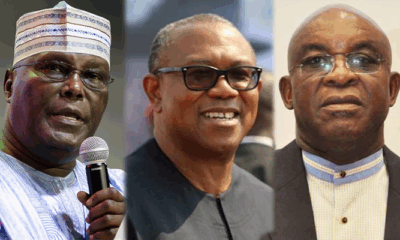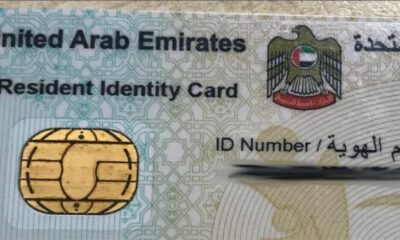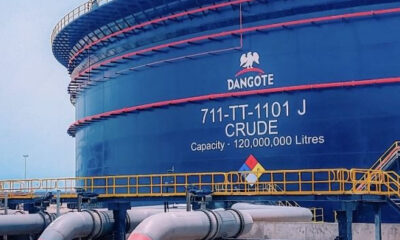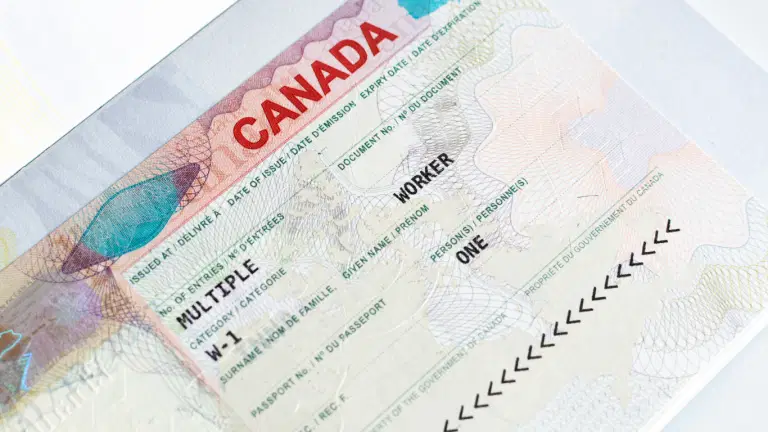Twenty-two days after pausing sales of petroleum products in naira, the Dangote Refinery has restarted the supply of refined products to its partners and marketers using the local currency.
The 650,000-barrel-per-day facility also notified customers and marketers of a cut in its loading cost, setting a new ex-gantry rate at N865 per litre—a change likely to ease fuel price pressures nationwide.
This new rate represents a N15 decrease from the N880 per litre sold just the previous day.
According to our correspondent, the refinery issued a notification to its customers on Thursday morning.
A Pro forma invoice viewed by our reporter, along with verification on petroleumprice.ng, confirmed the update.
The notice to marketers stated that petrol would now sell at N865 per litre, inclusive of charges from the Nigerian Midstream and Downstream Petroleum Regulatory Authority.
It also noted that other refined products remain priced in US dollars, and that sales of PMS via coastal vessels are still suspended.
The statement read: “Good morning. Our updated prices for 10.04.25 are: PMS Gantry: 865 in Naira for gantry (inclusive of NMDPRA), PMS coastal: On hold
“AGO Gantry: $579.00 + $77, AGO Coastal: $579.00 + $8, ATK Gantry: $622.25 + $42, ATK Coastal: $622.25 + $22 and LPG Coastal: On hold.”
Previously, marketers told our correspondent that the refinery was likely to reduce petrol loading costs by the end of the week, aiding a drop in retail prices.
Chinedu Ukadike, the National Publicity Secretary of the Independent Petroleum Marketers Association of Nigeria, reaffirmed the anticipated price reduction while reacting to the Federal Executive Council’s directive on the “naira-for-crude” initiative.
On Wednesday, the Federal Executive Council gave a go-ahead for full implementation of the previously suspended “Naira-for-Crude” deal with domestic refiners.
The council emphasized that the initiative is not a temporary solution but a “key policy directive designed to support sustainable local refining.”
This was revealed in a statement from the Ministry of Finance, posted on its official X account and titled: “Update on the Crude and Refined Product Sales in Naira Initiative.” The release followed a meeting on Tuesday between Finance Minister Wale Edun and Dangote Refinery representatives to assess progress and address ongoing concerns.
The committee stated that the policy is a long-term strategy to reduce Nigeria’s dependency on foreign exchange for petroleum needs.
It emphasized again that this initiative is a “key policy directive designed to support sustainable local refining and bolster energy security.”
According to the statement: “The Technical Sub-Committee on the Crude and Refined Product Sales in Naira initiative convened an update meeting on Tuesday to review progress and address ongoing implementation matters.
“The stakeholders reaffirmed the government’s continued commitment to the full implementation of this strategic initiative, as directed by the Federal Executive Council.
“Thus, the Crude and Refined Product Sales in Naira initiative is not a temporary or time-bound intervention, but a key policy directive designed to support sustainable local refining, bolster energy security, and reduce reliance on foreign exchange in the domestic petroleum market.”
The “naira-for-crude” policy, which mandates that both crude oil and refined petroleum products be traded in local currency, aims to strengthen economic autonomy, enhance refining capacity, and stabilize forex markets by reducing dollar demand for petroleum trade.
The ministry also described the policy as one that encourages energy security and boosts investment in local refining.
Though the shift is complex, the government acknowledged that any issues encountered are being systematically addressed.
“As with any major policy shift, the committee acknowledges that implementation challenges may arise from time to time.
“However, such issues are being actively addressed through coordinated efforts among all parties. The initiative remains in effect and will continue for as long as it aligns with the public interest and supports national economic objectives,” the statement added.
With this development, filling stations such as MRS Oil & Gas, Ardova Plc, Heyden, and others that have special agreements with Dangote Refinery are expected to adjust their pump prices to around N910, reflecting the change in ex-depot pricing.
However, the refinery’s market-based pricing adjustment has received mixed reactions. While many Nigerians welcome the reduced fuel cost, some marketers are concerned about potential financial losses.
Sources told our correspondent that MRS lifted 90,000 metric tonnes (approximately 120 million litres) of PMS on Tuesday at the previous N880 rate.
With the updated pricing, marketers like MRS may now have to sell at a loss, raising worries about profitability in the downstream sector.
Ukadike commented: “We are relieved, although it’s a mixed one. Some of us who bought and haven’t exhausted our stock are now selling at a loss—it’s a huge loss. The new price will help us buy more and sell faster, but we still have mixed feelings about it.”
IPMAN’s Vice President, Hammed Fashola, also welcomed the development:
“It is a good development; it is what we have been telling the government that it should be sustained because it would bring a lot of benefits and make the price stable. Once that happens, the price of fuel will come down, and this is good for Nigeria.”
He added that the recent price spike was a result of the earlier suspension of the policy.
“Now that the naira policy has been restored, we expect a reverse in the price,” he said.
Oil and gas analyst Olatide Jeremiah believes the move has intensified market competition:
“Dangote Refinery’s resuming sales of petrol in Naira has reactivated healthy competition, and the result will drive down fuel prices.
“As FG reaffirms the naira for crude policy to local refineries, private depots will need to be competitive to remain in business, they have been showing competitive strength lately with their pricing. Though according to Tanker Reports, we have been seeing massive inflows of tanker vessel loading from Dangote refinery, that’s commendable.
“The crude oil crash, coupled with the naira for crude policy renewal, just offers Nigerians another chance to buy affordable fuel at the pump, if only the retail outlets are regulated not to overprice for abnormal profits.”
Efforts to reach Anthony Chiejina, Chief of Corporate Communications for the Dangote Group, for an official statement were unsuccessful as of 7:14 pm when this report was filed.
Credit: The Punch

 BIG STORY1 day ago
BIG STORY1 day ago
 BIG STORY4 days ago
BIG STORY4 days ago
 BIG STORY2 days ago
BIG STORY2 days ago
 BIG STORY2 days ago
BIG STORY2 days ago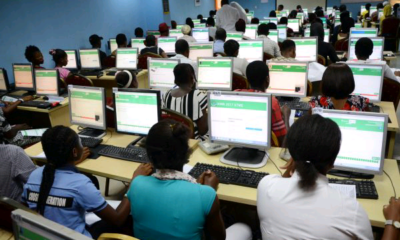
 BIG STORY1 day ago
BIG STORY1 day ago
 BIG STORY7 hours ago
BIG STORY7 hours ago
 BIG STORY3 days ago
BIG STORY3 days ago
 BIG STORY3 days ago
BIG STORY3 days ago











